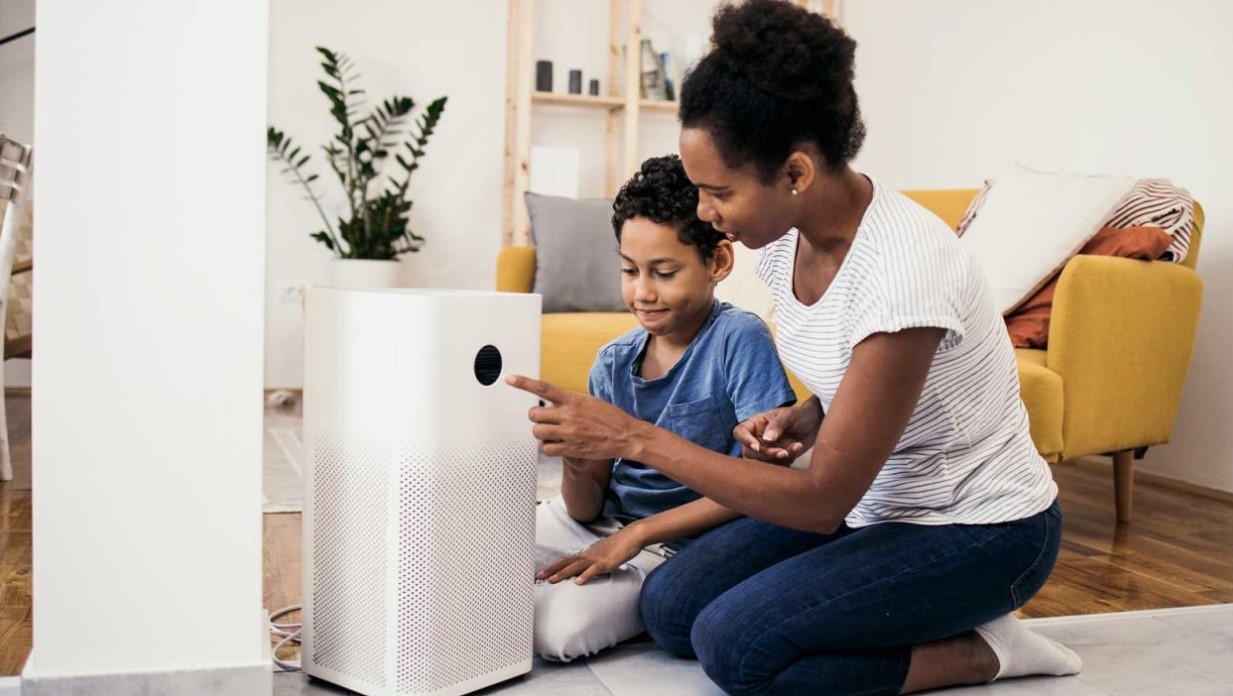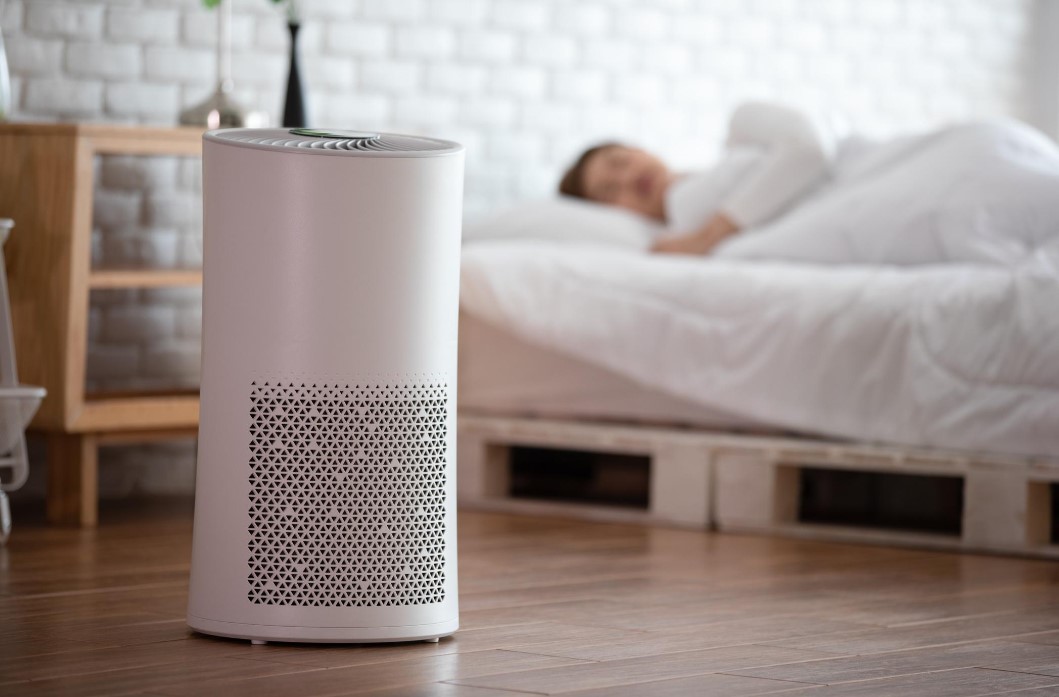The Pros And Cons Of Air Purifiers You Need To Know
Over the last few years, air purifiers have become increasingly popular as people strive to create a healthier living environment. These nifty devices promise to remove harmful particles, such as dust, allergens, and pollutants, making the air we breathe cleaner and fresher. While owning one of these may sound enticing, weighing the pros and cons of air purifiers before deciding is essential.
An air purifier can relieve allergies and respiratory issues, improving overall health and well-being. They can also be beneficial for urban dwellers who are exposed to higher levels of outdoor air pollution. However, like any technology, air purifiers have their drawbacks. The initial cost of purchasing the device and its maintenance costs can deter budget-conscious consumers. Also, not all air purifiers are created equal, and some may not effectively filter certain pollutants. As we delve into air purifiers, let’s explore their pros and cons to determine whether they are a worthwhile investment for a healthier home.
How Do Air Purifiers Work?
Upon entering an air purifier, indoor air passes through a filter. By capturing airborne pollutants like dust, the filters recycle clean air into the room, promoting a healthier environment. These air purifiers come in various types, some tailored to target specific contaminants while others focus on eliminating gases for improved indoor air quality. Now, let’s find out the pros and cons of air purifiers.
7 Pros of Air Purifiers
Considering the benefits of air purifiers for your home is essential before buying one. The following facts are important to keep in mind.
1. No Odors in the Air

Air purifiers offer the advantage of maintaining a scent-free environment. For those living in urban areas, daily activities can often lead to unpleasant odors, ranging from smelly socks to lingering trash stenches. All these unwanted smells can be eliminated by using an air purifier. Additionally, the persistent kitchen odors can be effectively eliminated, creating a much more delightful atmosphere to return to after a long day at work.
2. Improve Your Skin
Having an air purifier at home enhances indoor air quality and benefits your skin. Airborne particle pollution and various air contaminants can trigger skin problems. By eliminating these harmful particles, the air purifier promotes cleaner and healthier skin while preventing the risk of dermatological issues. With this simple addition to your living space, your skin will look fresh and blemish-free, and you’ll have a better chance of preventing skin ailments.
3. Improve Your Sleep

Another advantage of air purifiers is that it enhances your sleep quality. Often, individuals struggle with sleep-related issues, unaware of the significant connection between indoor air quality and sleep quality. A healthy air environment directly impacts the chances of getting a good night’s sleep. Having an air purifier in your living space can optimize your sleep patterns, ensuring a rejuvenating rest that fuels you with more energy for the challenges.
4. Ensure a Smoke-free Environment
If someone in your home smokes, an indoor air purifier can be a real lifesaver. It helps you stay unaffected by the smoke and ensures cleaner air. This nifty device is especially beneficial if your condo or flat has no designated smoke-free area. By using an air purifier, you can significantly reduce the risk of passive smoking for your young kids and elderly family members. Don’t let smoking compromise the air quality in your living space; let an air purifier be your ally in maintaining a clean and fresh indoor atmosphere.
5. Make Breathing Easier
Air purifiers offer a general improvement in breathing by removing harmful particles, making it easier for your lungs to function optimally. Inhaling fresh, purified air relieves your pulmonary system from the burden of dealing with contaminants, which could lead to serious health problems in the long run. By creating a cleaner environment, these devices promote overall respiratory well-being and reduce the risk of respiratory issues associated with exposure to polluted air.
6. Dispose of Volatile Organic Compounds
Cancer-causing agents often exist in elusive, scattered forms like vapors, making them difficult to detect. Vapors emanating from everyday sources such as paints and varnishes are also responsible for causing cancer. To combat this threat, air purifiers employ carbon channels to effectively eliminate these vapors, providing a safer environment for users.
7. Remove Allergic Microorganisms

Caring for pups and kittens is a huge responsibility when you have them at home. Sometimes, they can leave a strong pet smell lingering in your house. Let’s not overlook the tiny microorganisms they might bring in from outside. Living with pets could become quite a challenge if you have asthma or are sensitive to dust. By installing an air purifier in your home, you can say goodbye to worries about pet odors and allergens. You’ll be able to cuddle with your pets without any problems. Plus, you won’t need to constantly spray room fresheners to mask unpleasant smells.
Cons of Air Purifiers
Air conditioning seems to be a promising solution until it becomes a troubling environmental concern. Various reasons raise doubts about whether they truly serve as a suitable alternative for our homes. Several drawbacks of air purifiers should be considered carefully. The following list outlines some of these disadvantages.
1. Maintenance Costs Are High
Indoor air purifiers require regular maintenance, which can sometimes be quite costly. To ensure its effectiveness, keeping all its parts and peripherals in good working condition is essential as its efficiency greatly depends on this. Merely opting for a replacement won’t address any issues, but will add to your expenses. Timely cleaning and replacing filters can become a costly activity that should not be neglected.
2. Energy Consumption is Considerable

Air purifiers have a notable drawback: their significant energy consumption to operate effectively. This poses environmental concerns due to the reliance on fossil fuel-based energy production and leads to additional financial costs. Therefore, utilizing an air purifier could have adverse effects from both an ecological and monetary perspective.
3. UV Rays
The use of UV rays in a filter serves to eliminate all particulate matter that passes through it. Combining UV technology with air filters is a common approach to achieve enhanced efficiency and optimal air quality. However, the effects of UV technology can be astonishing for humans, as the filter’s interaction with UV rays can lead to the breakdown of oxygen and water molecules into ozone and hydroxyl. These newly formed elements may react with other pollutants, producing even more harmful substances. Due to the shielding effect provided by the particles, many UV air purifiers may not effectively trap microorganisms, making them less suitable for addressing particulate matter concerns.
4. Performance Can Be Insufficient at Times
No air purifier can achieve 100% efficiency, even though numerous manufacturers assert their mechanisms are top-notch. While some purifiers may effectively eliminate smoke or odor, they might fall short when combating microorganisms and allergens in your home. Another contributing factor to their reduced effectiveness is the age of the air purifiers. As time passes, their efficiency gradually diminishes, and filters become less capable of trapping microorganisms as they become clogged with other particles. To enhance the performance of your air purifier, it is crucial to regularly replace the filters and maintain a clean home environment as much as possible. Relying solely on a machine may not be the most effective approach.
5. Emit Harmful Substances

Air purifiers often emit ozone and other harmful substances, posing potential health risks. These emissions might not be easily detectable, especially in poorly ventilated rooms. Despite claims by manufacturers about reduced ozone levels, many air purifiers still produce ozone gas as a byproduct, which can endanger your health. While an air purifier may initially appear ideal for your needs, it could become a concern over time. The impact of ozone gas on human health includes symptoms such as shortness of breath, coughing, chest congestion, and other respiratory diseases.
6. Cause Light Pollution
Air purifiers commonly incorporate LEDs for convenient settings, but their lights can lead to considerable light pollution, especially when placed in a bedroom. The constant blinking of LEDs can be bothersome and disrupt sleep quality. To mitigate this issue, consider opting for air purifiers with adjustable brightness or ones that allow you to disable the LED indicators during nighttime use. By choosing a model with sleep-friendly features, you can enjoy clean air without compromising your sleep environment. The key to ensuring a good night’s sleep is balancing functionality and minimal disturbances while taking advantage of these devices’ air purification.
7. Can Be a Breeding Ground for Bacteria
When microorganisms accumulate and remain untreated within HEPA filters for a long time, they create an ideal breeding ground for bacteria and microbes. These microscopic organisms can rapidly multiply and eventually return to your living space. As a result, many users are uncertain about whether to opt for an air purifier or rely on natural ventilation. The concern lies in the potential of these filters to inadvertently spread harmful contaminants instead of effectively purifying the air.
Generally, there are many pros and cons of air purifiers. Therefore, you need to consider carefully before investing in this product for your family.
What Factors Should You Consider When Purchasing an Air Purifier?
After gaining the pros and cons of air purifiers, do you think you will buy an air purifier? If any, when deciding whether to buy an air purifier, there are some crucial factors you should consider. Firstly, prioritize air purifiers equipped with True HEPA filters as they effectively eliminate tiny particles like dust mites, pet dander, pollen, and mold. You should also avoid falling for marketing tactics and skip purifiers labeled as HEPA-like or HEPA-type, as they may not offer the same level of filtration.
Secondly, ensure the chosen unit is appropriately sized for the intended use area to maximize efficiency. If possible, opt for a unit with the Association of Home Appliance Manufacturers (AHAM) Verified mark. Although this certification is voluntary, most reputable programs undergo this rigorous process, assuring better quality and performance.
Other Methods to Improve Your Indoor Environment

Air purifiers are not the only way to improve the air quality in your home. To make breathing easier for you and your family, follow these steps below:
- Your bedding should be washed in hot water weekly.
- Make sure your pillows and mattress covers are allergy-proof.
- Keep your pets, especially cats, out of the bedroom.
- Regularly change the air filter in the ventilation system.
- Sleep with the windows closed to prevent outdoor irritants.
- Be cautious of standing water and damp areas in your home to prevent mold growth, which can be a trigger for sensitive individuals. Remember that live plants can also be “hidden triggers” for allergies, so consider this when decorating.
- Avoid smoking in the home and exposure to passive or secondhand smoke on your clothing.
- Keep your home clean, especially in the bedroom, by vacuuming regularly.
Bottom Line
Air purifiers offer numerous advantages in enhancing indoor air quality, but they also come with certain limitations. Weighing the pros and cons of air purifiers will help you decide whether to invest in one to ensure a healthier home environment. Right investment and maintenance are always worth it.
Related Articles